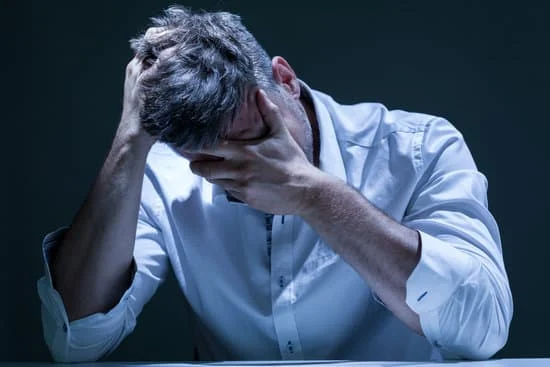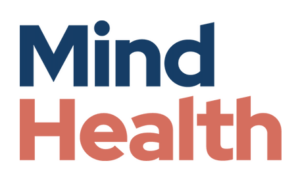Overview
Police officers work in an environment that is often stressful and physically demanding which means our body’s natural response is to produce hormones such as adrenaline and cortisol. When this natural response becomes unregulated due to long term exposure to stress it can and sometimes does lead to anxiety.
Likewise, family members of police officers may also feel stressed when living with a loved one who is working long hours, rotating shifts and who may be experiencing trauma in the workplace. The added pressures of a partner being away from home in possibly dangerous working environments can impact on family via regularly feeling worried and covering extra home commitments which add further stress on partners and sometimes children.

Feelings of stress will accordingly come and go and may dissipate when the body moves into the rest and restore mode where the parasympathetic nervous system kicks in. Simply stopping, taking a few long slow breaths, meditating or talking about the stressful situation or thoughts to a trusted colleague, friend or family member may resolve the physical feelings of anxiety however the impact of everyday work life combined with family issues and life pressures may result in the need to seek professional help.
There are several avenues to seeking support, attending your GP at the first instance and discussing the issues around work life balance will assist your doctor to assess what type of support may be required. A referral via a mental health plan is an option to commence a series of counselling sessions preferably with a suitably trauma informed clinician who understands police culture.
Otherwise, contacting your state jurisdiction Employee Assistance Program can also assist with counselling or making an appointment to speak with your state chaplaincy service can be helpful.
To identify when anxiety may be an issue and it might be appropriate to seek further assistance the following list of symptoms and signs can be helpful to look out for:
- Difficulty concentrating
- Unnecessary worries or concerns that continue to pop into your mind
- Difficulty falling to sleep or staying asleep
- A general feeling of being unable to relax
- Keeping yourself busy all the time
- Avoiding places or people
- Feeling irritable, annoyed or restless
- Avoiding family and friends
- Feeling shaky or experiencing sweaty palms
- Frequent headaches, migraines or muscle aches
- Feeling your heart racing
- Shortness of breath
- Panic attacks
- Feelings of impending doom
Step-By-Step
When should I consider seeing my GP?

Anxiety starts to impact your daily work and home life
Feelings of panic become noticeable to the point where you can't relax or you feel you need to run away
You notice your heart pounding, shortness of breath and a general feeling of impending doom
What is the next steps when seeing my GP?

Making an appointment with your GP and explaining your symptoms will assist your Doctor to understand your feelings and what may be the underlying cause
Your GP will generally ask you to fill out a number of questionnaires to assist with assessing your condition
You may then be referred to an appropriate health clinician for further diagnosis, medication or counselling
In the meantime, it may help to reduce Caffeine, Alcohol and Non Prescription Medication
Content for anxiety or depression
 17 Nov 2021
17 Nov 2021
Injured Workers Support
Injured workers support provides Australia wide information and resources to people injured in the workplace. Resources include, your rights, workers compensation handbooks, networks and support services, fact sheets and useful links.
 07 Feb 2025
07 Feb 2025
Kellyville Private Hospital (Aurora)
Aurora Kellyville Private Hospital
Inpatient and day programs available to serving and former police for addictions, PTSD, anxiety and depression.
 21 Oct 2021
21 Oct 2021
Kids Helpline
Kids Helpline is a confidential and free 24/7 phone and online counselling service for young people and children from the ages of 5 to 25 which aims to keep young people free from harm. Website Information on safety for children and parents resources provide support when emotional help is needed at any critical moment.
Kookaburra Kids Foundation
Kookaburra Kids provides resources, programs, activity days, connectivity and statewide residential camps for children living in families impacted by mental illness. Children learn about mental illness via chat groups, connecting with others experiencing similar commonalities and participating in fun activities.
 21 Oct 2021
21 Oct 2021
Lifeline Australia
Lifeline provides 24/7 telephone crises and suicide prevention support to people feeling isolated, worried, anxious or having a difficult time. Information and support is also available for friends or loved ones with concerns about how to talk to or support someone in crises or who might be at risk of self-harm. Chat and text services are also available between 12pm and 6am daily with downloadable resources available via their website.
 17 Nov 2021
17 Nov 2021
Man Therapy
Resources including videos on topics that effect men or those with a man in their life they are concerned about. Topics include, addictions, anxiety, depression, divorce, relationship and sex, teenage children’s issues, sleep, trauma, grief and anger. First responders are included in videos and resources.
 15 Nov 2022
15 Nov 2022
Meditation links
Meditation is a practice of quietening the mind, letting go of thoughts and feelings and a way of observing ourselves without judgement or fear. It allows our busy minds a space to relax and replenish while opening avenues to tap into our intuition, creativity and spirituality.
 17 Nov 2021
17 Nov 2021
Mensline Australia
Mensline Australia offers 24/7 counselling support via telephone and online to men across Australia. Resources and information is also available to enhance relationships, help with addictions, understanding anxiety, separation and divorce and dealing with general stress.
 15 Nov 2022
15 Nov 2022
Mental health and wellbeing strategy for first responders
This strategy sets out the commitment of NSW first responder agencies to promote and protect the mental health and wellbeing of their staff and members. It represents a consensus among the agencies about what is required to meet this obligation.
 27 Sep 2023
27 Sep 2023
Mentality Plus
Mentality plus is run by Craig Semple who is a former police officer with lived experience of PTSD and associated mental health conditions. He is fully accredited and culturally sensitive to police and provides mental health first aid training and programs to create mentally healthy and resilient workplaces, mental health motivational presentations, workplace health and wellbeing programs and mental health and resilience for students.
 03 Mar 2023
03 Mar 2023
Michelle Robertson – Clinical Psychologist
Michelle has many personal qualities and qualifications that make her the psychologist that she is - being curious, investigative, logical, practical, empathetic, friendly, positive, hopeful, having the ability to understand many perspectives, values, likes and connects with people easily, has life experience, and is able to see the positives and strengths within everyone.
 17 Nov 2021
17 Nov 2021
Mind Health Connect
Mind Health Service Connect Line provides free telephone counselling and resources for people residing in the Hunter New England and Central Coast areas specifically covering mental and physical health as well as social support services.
 07 Feb 2025
07 Feb 2025
Mind Over Matter Practice
At Mind Over Matter Practice, we use science-backed therapies to support mental resilience, mood regulation, and brain function by influencing key neurotransmitters and stress pathways.
 17 Nov 2021
17 Nov 2021
National Centre for Childhood Grief
The National Centre for Childhood Grief provides unlimited free counselling for children aged 3 to 18 years and pay for service counselling for adults living with grief and bereavement. Services are available at ‘A Friends Place’, located in Denistone East, Sydney NSW.
 14 Nov 2022
14 Nov 2022
National State Police Insurance and Workers Compensation Providers
Serving police in each state pay into individual state insurance, workers compensation, superannuation and income protection schemes. Assistance during times of injury, Illness, death, or career transition are available by contacting your appropriate state provider.
 14 Nov 2022
14 Nov 2022
National State Police Jurisdictions Mental Health Services and Programs
Each individual state police jurisdictions will have mental health services for serving police which should include an Employee Assistance Program (EAP) along with other specific services. This may include EAP for transitioning police, former police up to 12 months and services for families. Career Transition services may also be included in some jurisdictions as moving into a new career after serving in the police force impacts mental health outcomes.

 Exit
Exit




